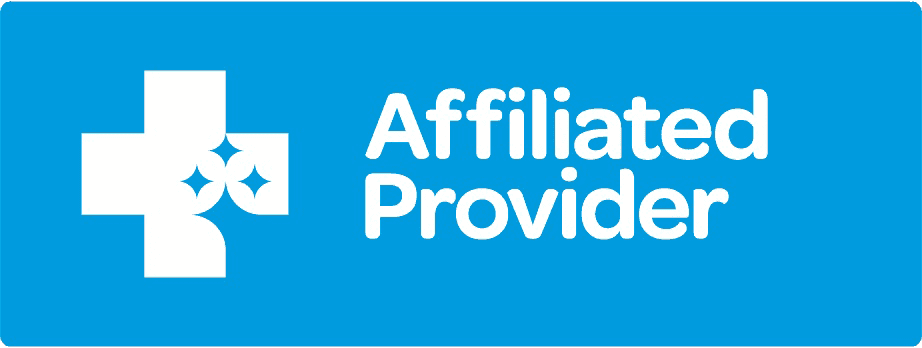As the cost of living in New Zealand continues to rise, many Kiwis are feeling the pinch. The current economic climate, characterised by high inflation, increasing fuel prices, and escalating food and heating costs, is making everyday life more expensive. For medicinal cannabis users, these financial pressures are compounded by the fact that medicinal cannabis is not subsidised in New Zealand. This blog post aims to provide practical advice and strategies to help medicinal cannabis users navigate this challenging economic landscape.
Understanding the Crisis
I don’t claim to be an expert on the economy, but according to some economic experts, New Zealand is currently in a technical recession, with the Gross Domestic Product (GDP) down 0.1 percent quarter-on-quarter [1]. Inflation is stubbornly high at 6.7 per cent, at the time of writing [2]. The government’s Fuel Excise Duty (FED) also has resumed, causing petrol prices to rise by 25 cents [3]. Heating bills are also expected to increase as winter sets in. The food price index rose by 12.1 percent in May 2023 compared to last year, with fruit and vegetable prices increasing by 18.4 percent [4].
For homeowners, the situation is further complicated. Housing prices have crashed nearly 18 percent since November 2021, eradicating more than $6 billion in household wealth. Many New Zealanders are also re-fixing their mortgages this year from a low rate seen during COVID-19 of around 2-3 percent to the new rates of around 6-7 percent [5].
Strategies for Medicinal Cannabis Users
Despite these challenges, there are several strategies that medicinal cannabis users can employ to make their medication more affordable:
Switch to Vaporisers
Vaporisers can be more cost-effective than smoking dry flower. They are more efficient at extracting cannabinoids, meaning you need less cannabis to achieve the same effects. Vaporisers can also be used multiple times from a single loading, unlike smoking where the cannabis is burnt and cannot be reused. This efficiency can significantly reduce the amount of dry weight used, making your supply last longer.
CannaPlus+ offers free vape education consultations to help patients understand and effectively use vaporisers. You can book here
Take Tolerance Breaks
Regular use of THC-containing medicinal cannabis products can lead to increased tolerance, meaning you need more of the drug to achieve the same effects. By taking short breaks, you can help reset your tolerance and reduce the amount of cannabis you need. For more information on how to safely and effectively take tolerance breaks, contact the nurses at CannaPlus+.
Switch from Dry Flower to Oils
Cannabis oils can often be more cost-effective than dry flower. They are more concentrated and can be taken in smaller doses, making them last longer. Additionally, oils offer more precise dosing, which can help avoid overuse and make your supply last longer. For more information on medicinal cannabis oils, contact the nurses at CannaPlus+.
Use a Dispensary
The cost of medicinal cannabis products is not standardised across pharmacies, and many pharmacies add a markup to the wholesale price, making it unnecessarily expensive. CannaPlus+ operates a dispensary that offers lower costs, making us the most affordable medicinal cannabis clinic in New Zealand.
Moreover, to help reduce travel costs and save time, we offer a courier service for delivering medication directly to your doorstep. This service is particularly beneficial for patients living in remote areas or those who find it difficult to travel. However, please note that this might not be suitable for everyone, especially those where the security of delivered packages might be a concern. Our team can discuss this option with you to determine if it’s the right fit for your circumstances.
Bulk Purchasing
Some products offer bundles that make them more affordable than their standard units. For example, if a patient uses 10g of dry flower per month and has repeats for the maximum allowed timeframe of three months, then purchasing a 30g bundle for the entire three months would be significantly cheaper. However, it’s important to ensure the product is suited to the patient before committing to a larger prescription.
Microdosing
Microdosing involves taking smaller doses of medicinal cannabis throughout the day instead of larger doses all at once [6]. This can help maintain a consistent level of cannabinoids in your system, potentially providing more consistent relief. It can also extend the life of your cannabis product and lower costs over time.
Exploring Different Brands or Products
Prices can vary significantly between different brands and types of medicinal cannabis products. Patients may find a more affordable option that still meets their medical needs by trying different products.
CannaPlus+ offers a patient education portal to help with more informed decision making.
Patient Assistance Programs
While success is not guaranteed, it’s worth exploring whether Work and Income New Zealand (WINZ), the Ministry of Social Development (MSD), or the Accident Compensation Corporation (ACC) can assist with payments for medicines. Health insurance may also cover the cost of consultations. It’s important to note that while plant-based medicinal cannabis products are verified by the Ministry of Health, they are not approved for specific medical conditions and therefore are not covered by health insurance.
For more information on how to navigate this process, contact the nurses at CannaPlus+
Budgeting and Financial Planning
Regularly tracking spending on medicinal cannabis can help patients understand their usage patterns and identify areas where they might be able to cut costs. Planning for this expense in their monthly budget can also help ensure they have the funds needed when it’s time to purchase more. HealthNow, an after-payment service, can help spread the costs of medications over a defined time period, which may assist with budgeting.
Advocacy
Advocacy groups such as the New Zealand Drug Foundation and Medical Cannabis Awareness New Zealand are working to improve access to medicinal cannabis. Joining or supporting these groups can help push for policy changes that could make medicinal cannabis more affordable, such as insurance coverage or lower taxes on medicinal cannabis products.
Conclusion
The cost-of-living crisis in New Zealand is undoubtedly challenging, particularly for medicinal cannabis users. However, by employing some of the strategies outlined above, it’s possible to make medicinal cannabis more affordable. Remember, it’s important to discuss any changes in your medicinal cannabis use with your healthcare provider to ensure you’re still meeting your treatment goals. As we navigate this crisis together, let’s continue to support each other and advocate for affordable access to medicinal cannabis.{link}
- https://www.stats.govt.nz/news/economic-activity-falls-0-1-percent-in-the-march-2023-quarter/
- https://www.cmegroup.com/education/events/econoday/2023/07/feed567911.html
- https://www.transport.govt.nz/area-of-interest/revenue/rates-of-petrol-excise-duty-and-road-user-charges/
- https://www.stats.govt.nz/information-releases/food-price-index-may-2023/#:~:text=Food
- https://www.nytimes.com/2023/06/19/business/new-zealand-housing-prices.html
- Almog, S., et al. (2020). The pharmacokinetics, efficacy, and safety of a novel selective-dose cannabis inhaler in patients with chronic pain: A randomized, double-blinded, placebo-controlled trial. European Journal of Pain. https://doi.org/10.1002/ejp.1605








